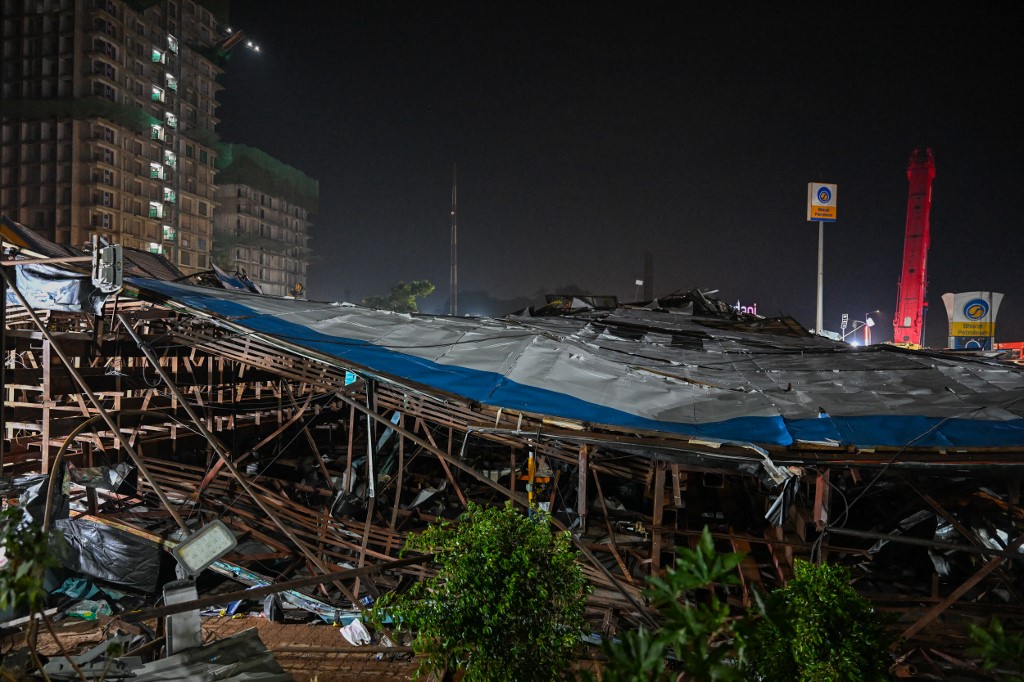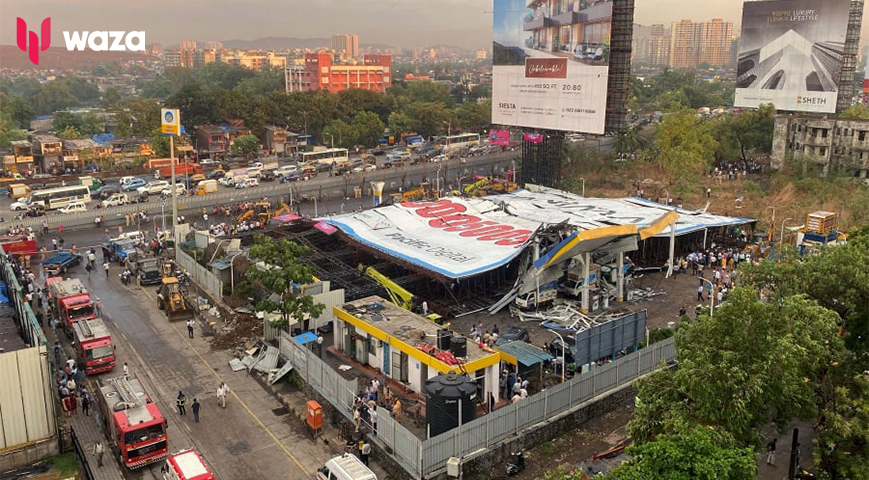In Mumbai, the financial hub of India, a billboard collapsed, killing at least 14 people. In their last search for survivors trapped beneath the wreckage, rescuers utilized excavators to remove twisted metal debris.
Over a hundred people were trapped when a gasoline station, houses, and cars were crushed by a billboard more giant than an Olympic-sized swimming pool on Monday during a thunderstorm, according to authorities.
Rescuers in the Ghatkopar suburb of Mumbai toiled through the night to extricate people from the rubble by the side of a busy main thoroughfare.
The Brihanmumbai Municipal Corporation, the city's civic body, reported that 14 bodies had been discovered and about 75 wounded had been rescued.
.jpeg)
"The operation was very challenging due to the weight of the structure and the presence of flammable liquid and gas at the site," Mohsen Shahedi, a senior National Disaster Response Force officer, told Reuters.
Shahedi said the rescue operation was nearly over except for one last sweeping search.
"We believe there is no one else stuck under the debris," he said.
Videos showed the enormous billboard soaring in the wind and collapsing as the city was battered by a dust storm and rain, which stopped traffic and interfered with flights at the Mumbai airport.
The municipal body claimed that the billboard's owner agency lacked a BMC permit. It was stated that the hoarding was approximately 1,338 square meters (14,400 square feet), nine times larger than what was allowed.

According to the BMC, the agency has been directed to remove all its hoardings immediately.
"To prevent such accidents from happening again, instructions have been given to conduct a structural audit of all hoardings in Mumbai and immediately take down dangerous ones," Eknath Shinde, the chief minister of Maharashtra state of which Mumbai is the capital, said in a post on X.
"Out of 1,300 such hoardings in Mumbai, around 30 have not submitted a structural stability report that is mandatory every two years," said Bhushan Gagrani, who heads the BMC.
"We are looking into that."









